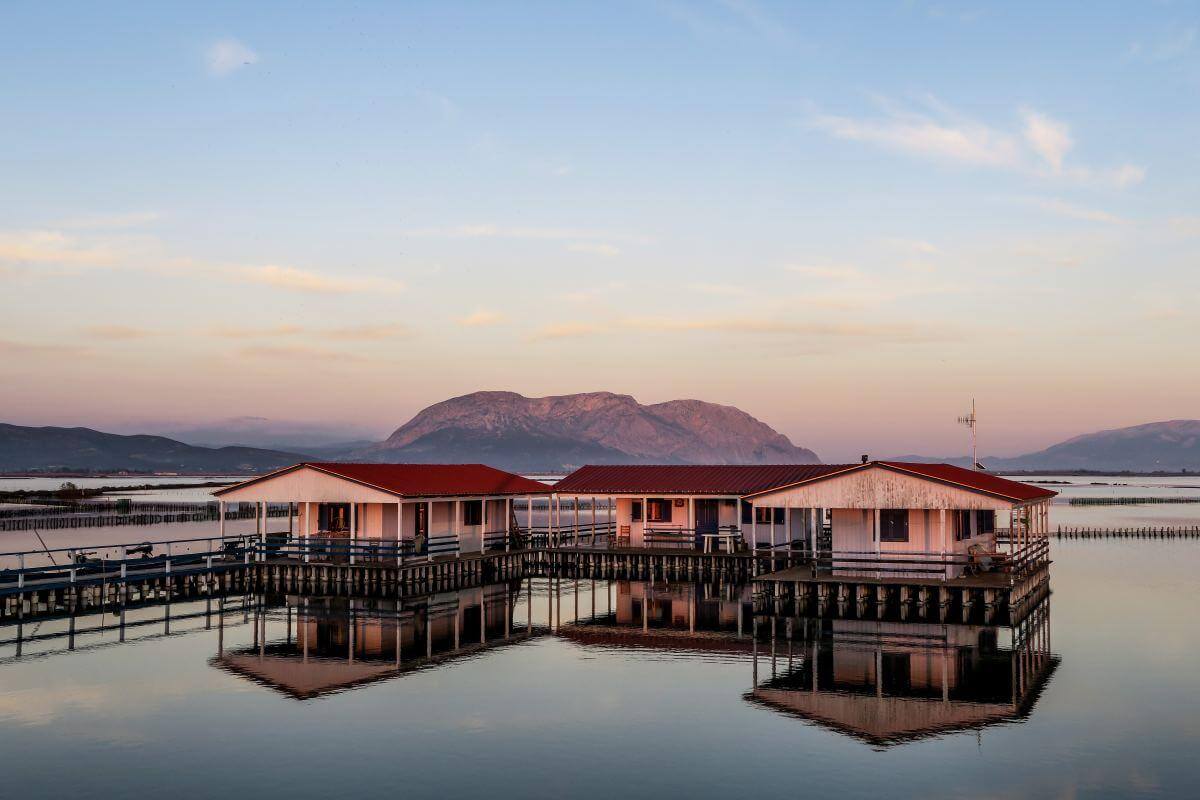President Bush Participates in Joint Press Availability with
June 9, 2007
3:48 P.M. (Local)
PRIME MINISTER PRODI: (As translated.) Good afternoon, everyone. I am delighted to have received President Bush today, and I thank President Bush for having chosen to spend a couple of days in Rome for his European mission -- a rather long European mission, I would say. And this is the first in his second term.
joint statement with Prime Minister Romano Prodi at his Chigi Palace in Rome. White House photo by Chris Greenberg" src="/upimg/allimg/20070615/1048080.jpg" width="254" align="right" border="0" /> Our talks today have been very, very interesting, indeed, very friendly talks. And I must say that we took the opportunity, in fact, to pursue some issues that we already began discussing in Heiligendamm, and in fact, we had a bilateral meeting today and discussed some of the issues, as I said, that we already went over in Germany.
We talked about climate change, energy, our fight against poverty, our Africa policies. These are all very, very important decisions and choices that we have to make, and of course, that are going to be important for the future, the next generation, as well.
We briefly went over some bilateral issues. Fortunately, we don't have any bilateral problems, I would say, no serious problems that have created any pisions between our two countries. And in particular, in fact, we do share the same views with regard to many issues, many matters. And we basically agree on how the future of the world should look, should be.
Now, I thanked President Bush for some symbolic gestures that he has shown. Our countries are becoming closer and closer. And, in fact, Italian, the Italian language is one of the languages that can be freely chosen in American schools; all high schools in America offer Italian as a language of study. And I think that this is a wonderful step, a wonderful way to bring two countries closer, especially when we consider that the flow of immigration between our two countries has stopped -- it stopped a long time ago.
Now, going on to other issues -- of course, we agree that we need some new major players, new major world players, and we have to, in fact, work together with China, India, Brazil, Mexico. And we agree on that approach.
We also talked about some meetings that we had Mr. Lula and President Hu Jintao after the end of the G8 summit. And we realize, as I've said, that we've got to work more and more together. And I think that the progress that has been made by the United States in reaching an agreement, a broad agreement on climate change has been a wonderful step forward, and I think that this is taking us in the right direction -- in other words, we have to work together on these issues.
We haven't yet finalized just about the quantitative details of this agreement, but, obviously, the underlying message is to work together to cooperate. And I would say that maybe just a few months ago that seemed to be unlikely.
Now, we also had a good discussion on other issues of common concern. We talked about Kosovo, for example; Lebanon; Afghanistan, and we spoke about some responsibilities that we should take on together. So both our countries should work together in order to restore peace and stability in these different areas of the world.
We need to do more. We need to keep working together, especially when it comes to Middle Eastern issues. We know, of course, that we have not yet been able to put an end to the crisis which has been ongoing now for a number of years. And in Lebanon, in fact, the peace mission has certainly led to some positive outcomes, yet, there are still tensions, there are still many difficulties. And that's an open-ended issue, therefore, that we have to continue being concerned about.
Now, that's what we discussed today. I don't wish to add any further remarks. I would like to give the floor right over to President Bush. And I thank you so very much for having come today, and I thank you for making it possible to cooperate together and, of course, for enabling this cooperation with success in the future. Thank you.
PRESIDENT BUSH: Buongiorno. Mr. Prime Minister, thank you. Laura and I are glad to be back in your beautiful country. Rome is a spectacular city. And I'm sorry we're disrupting traffic, but nevertheless, it is great to be back here. Thank you for the wonderful meal, and thank you for our friendship. I think it's important for the people of your country to know relations between our countries are strong, and we intend to keep them that way. And I appreciate that, and I appreciate the good conversation we had.
I thank you for your commitment to the people of Afghanistan. Your country has been an integral part of the NATO mission. You provided a lot of important troops for NATO, you're involved with the PRTs in Afghanistan. I thank you, but no more so than the Afghan people thank the people of Italy. These people are desperate to live in a free society, and you ought to take great pride, Romano, and I know you do, in making a significant contribution to their freedom.
I also appreciate your very -- your strong advice in making sure that we all understand this is not just a military operation, that there has to be a political track and a reconstruction track in order for this democracy to survive. And so I'm looking forward to continuing to work on this important issue.
I thank you, as well, for your leadership in Lebanon. It was a year ago when we were at the G8 -- you remember the attacks came on Israel, and then all of a sudden the situation began to look like it needed some help. And there was a lot of doubt in the world's mind, until Italy stepped up and said, we will provide troops and we'll be the military leader in Lebanon. And then the world followed. And I want to thank you for your leadership on that important issue.
And now we've just got to make sure the Siniora government survives. One of the best ways to do so is to insist that we proceed forward with the Hariri trial, to make sure that there are consequences for behavior that may affect the stability of a democracy. I don't want to prejudge the outcome of the trial, but I do think it's an important measure for all of us to see the truth in that part of the world. And I know we can continue to work together. It's very important that foreign influences, like that of Syria, not be continually disrupting the Siniora government.
I want to thank you very much for our discussions on Kosovo. This is a part of the world you know a lot about. Romano made some very significant contributions during the roundtable discussions at the G8 and was, again, very eloquent today about two things -- one, obviously, a deep concern about the Kosovars, their desire to be independent, coupled with making sure there is a avenue forward for Serbs through the EU and maybe NATO. And I appreciate you leading on this issue. It's important that the United States and Italy work together on common problems. After all, we share common values. And today's discussion just goes, at least, to show me how much we can do when we work in a collaborative way.
As Romano said, the bilateral relations are pretty darn solid, and I appreciate that. There's a lot of Italian Americans who have got great pride for their homeland. They're watching this press conference -- well, they may not be watching all of it, Romano, but they'll be watching some of it, and they're going to want to know, are we doing well? And the answer is, we are. And I'm grateful.
Answer a couple of questions -- or what do you think?
PRIME MINISTER PRODI: Yes.
PRESIDENT BUSH: Okay, yes.
Q Mr. President, you just said that you had lunch with Mr. Prodi today. Then later you'll have a coffee break with Mr. Berlusconi. What do you enjoy most, the lunch, or the coffee break? (Laughter.) Or would you have preferred to be on a diet today? (Laughter.)
And to Prime Minister Prodi, now, I'm perhaps not going to be so ironic in my question. Now, the friendship is wonderful. You've made progress. But I know that there have been some differences between the U.S. and Italy over the months, even though the friendship is solid and progress has been made. So President Bush is asking you to perhaps change your rules of engagement in Afghanistan, and even with regard to Iran there are some differences of opinion and, in general, in the Middle East. So have you managed to close that gap a bit, or how do you think you might be doing that in the future?
PRESIDENT BUSH: Yes, I'm going to have coffee with the former Prime Minister, Prime Minister Berlusconi. I'm doing so for a couple of reasons. One, he is the opposition leader; two, he is a friend. And I mentioned this to Romano and his attitude was, I don't blame you -- it's the kind of thing he does when he goes to other countries. And I'm looking forward to seeing Silvio. One shouldn't read anything into it other than, we made some decisions together, we've known each other for a while -- just like I've known Romano -- actually, I've known Romano a long time, too. He was President of the EU early on in my presidency. And so I consider it an honor to have friends with two important leaders here in Italy.
PRIME MINISTER PRODI: We spoke very frankly about many of the issues that you've just raised in your question. And, yes, there certainly is an active cooperation between us. And this is with regard to problems we've had in Afghanistan and, of course, the very difficult situation in Iran. And we both share the same position, the same views with regard to the danger that we are running if we allow the proliferation of nuclear weapons. And we also agree on the course of action that should be followed.
So I think that in the future we'll certainly be able to work together and we'll be able to exert pressure, both of us, on the Iranian government. We don't want them to exceed the limits, as it were, of a peaceful and monitored or controlled use of nuclear technology. So this is our position and, as I said, we share the same view.
Now, of course, we also discussed other issues on our common agenda and we were able to reiterate the fact that there is an interdependence here and a need to work together, not only because it is helpful or useful, but it is a strong need that we have to focus on to restore peace in the world.
Now, we spoke about climate change, about global warming in our meetings over the past few days. And I think that this has somehow set out a course of action for the future -- how we can perhaps harmonize our production systems; how we can make sure that our political decisions are, in fact, in conformity with these needs. And I think, again, that we'll definitely be able to make huge progress together.
Q Thank you, sir. Can you talk about your conversation with Pope Benedict earlier? Did you have a fundamental disagreement over whether Iraq was a just war? And what of his concerns about Iraq did you take to heart?
And, if I could, to the Prime Minister, what did you tell the President today about the trials going on here involving Americans?
PRESIDENT BUSH: Jennifer, I'll be glad to share some of the private conversation with His Holy Father. First, I'll give you an impression. I was talking to a very smart, loving man. And, you know, after six-and-a-half years of being the President, I've seen some unusual -- I've been to some unusual places and I've met some interesting people. And I was in awe, and it was a moving experience for me.
We didn't talk about "just war." He did express deep concern about the Christians inside Iraq, that he was concerned that the society that was evolving would not tolerate the Christian religion. And I assured him we're working hard to make sure that people lived up to the constitution, the modern constitution voted on by the people that would honor people from different walks of life and different attitudes.
We talked about a lot of other subjects. We talked about our attempts to help the people on Africa deal with HIV/AIDS and malaria and hunger. I reminded him that we made a significant commitment to that end; that about three years ago, 50,000 people were getting anti-retroviral drugs, now over 1,100,000 people are getting them, as a result of our initiative on HIV/AIDS, and that I'm going to double that commitment -- or ask Congress to double the commitment, from $15 billion to $30 billion.
I talked to him about our malaria program, about how we intend to reduce malaria by 50 percent in certain countries, and that I'd continue to remind the world of our duty to work together to achieve a major goal, which is to try to eradicate malaria throughout Africa.
And I talked to him about our attempts to feed the hungry, and I also reminded him that we've got poor people in our own neighborhood that need to be affected. He talked about immigration. He's watching the immigration debate very closely in America. And I told him I was a person who strongly supports comprehensive immigration reform; that, on the one hand, we'll enforce our law, on the other hand, we need to treat people with dignity. And we had a good discussion.
Q -- Pope has said --
PRESIDENT BUSH: What?
Q The Pope has said Iraq was worrisome.
PRESIDENT BUSH: Yes, he's worrisome [sic] about the Christians inside Iraq being mistreated by the Muslim majority. He's deeply concerned about that, and we spent a lot -- spent a fair amount of time talking about it.
PRESIDENT PRODI: We did not discuss the issue that you raised in your question just a moment ago. And I've already clarified many times that Italy, of course, is a democratic country. We have very clear-cut rules that we follow, and we, therefore, enforce our rules. And I am confident that there is no conflict here, in terms of our friendship and our cooperation with the United States.
Q Thank you. You've just told us that you and President Bush have just returned from your G8 summit. Now, the outcomes that have been stated on the many issues that you discussed -- climate, development, and the missile shield -- now, are those real -- is that real progress, or not? And the deadline for the Kosovo independence --
PRESIDENT BUSH: What? Say that again?
Q Deadline for the Kosovo independence?
PRESIDENT BUSH: A decline?
Q Deadline, deadline.
PRESIDENT BUSH: Deadline. Beg your pardon. My English isn't very good. (Laughter.)
Q Sorry. Do you wish that President Prodi will pay a visit to you in Washington in the next months?
PRESIDENT BUSH: Yes, and yes.
Q And on the deadline?
PRESIDENT BUSH: I'd love to welcome the Prime Minister. We're just going to have to work through our schedules, but he's invited any time. Listen, Italy is a great friend. There are millions of people in our country who love Italy, because that's where their heritage is from. My Ambassador's grandfather was from Italy. I'm sure you know this, but the heritage -- the Italian heritage is a powerful part of our country and its culture. And the Prime Minister is welcome.
In terms of the deadline, there needs to be one. This needs to come -- this needs to happen. Now it's time, in our judgment, to move the Ahtisaari plan. There's been a series of delays. You might remember there was a moment when something was happening, and they said, no, we need a little more time to try to work through a U.N. Security Council resolution. And our view is that time is up.
And so we're working with our friends and allies, and I had a long discussion with Vladimir Putin on the subject. To share with you my thoughts, what I told him there at the table was, it's time; it's time to bring this issue to a head. And obviously there's deep concern about what that would mean, whether he'd accept it, or not. I understand that. But the Kosovars are eagerly anticipating a decision by the world.
And at the same time, Romano is right, we need to make sure that the Serbs see a way forward. And one good way forward is through potentially EU membership. I don't have that much to say in it, but I can talk to the Serbs about economic development, and can talk about a better relationship with the United States. And, therefore, we will.
PRESIDENT PRODI: Going back to the summit, I can say that it has been an actual success, real progress, in other words. I mean, just think, people were expecting a rift, problems, arguments, and instead we did reach some important conclusions. Now, event the issue of global warming, for example, we realize that there is a predominant, a prevalent principle, and that is that global issues have to be dealt with globally. In fact, we all talk about the Kyoto Protocol, for example, and we said that this was the first step towards international cooperation in this field, in this sector.
Now, again, we still have some technicalities to work out, some little pieces there are missing, as it were. But definitely there is a clear-cut will to move forward. We have a resolve there -- India, China, Brazil, Mexico, everyone has shown the same resolve. There were other countries in addition to these; even though they're not G8 members, they're all there to work on global solutions because this is the only way we can possibly reach some kind of equilibrium in the future.
Now, with regard to the other issues -- Kosovo, for example, and our relations with Russia -- well, I would say that during our meetings there was a certain ambiance. We talked about interdependence. I think that's a good way of putting it. We didn't feel any tension, but rather we were all seeking a way to strengthen our interdependence. And I think that this is something that should be guiding us in our relations with Russia, and this is how we can build up a peaceful system for the future.
Those are the goals of the G8. In fact, G8 summits don't always have technical agendas that are predefined, predetermined. That's not how it works. We need to meet and to freely discuss some of these long-term issues. So we were able to do that very freely, very openly. And I must say that we all agreed on our future course of action. And I think that we couldn't have hoped for any better than that.
Now, with regard to Kosovo, again, now we know how to move forward, after our discussions there. And I think that that, basically -- I mean, we couldn't have hoped for any better outcome than that there.
Q Thank you, sir. Mr. President, General Pace, an Italian-American, Pace, as you know, is leaving -- a distinguished Marine, with a lengthy career, somebody that all indications are, you and Secretary Gates enjoyed working with a great deal -- is on his way out. And I wonder what this says about the political climate in Washington, that it was decided that maybe it would be better to have a new Chairman of the Joint Chiefs, rather than have a bruising battle on Capitol Hill.
PRESIDENT BUSH: Pete Pace is a fine man and a great general. And I think the fact that Secretary Gates made the recommendation not to move forward with a renomination speaks to the U.S. Congress and the climate in the U.S. Congress.
Pete Pace always gave me candid advice. Pete Pace is an excellent strategic thinker. And the interesting thing about Pete Pace -- even though he had four stars on his shoulder, always talked about the private. He speculated out loud about Private Pace, what would Private Pace think of this decision, what would Private Pace's family think about a decision that he was recommending to me.
And so the decision has been made and I'm going to miss him. And the country owes him a great debt of gratitude for years of service, first at Vice Chairman, and then as Chairman of the Joint Chiefs of Staff.
Thank you, all.
PRIME MINISTER PRODI: Thank you.
END 4:12 A.M. (Local)



